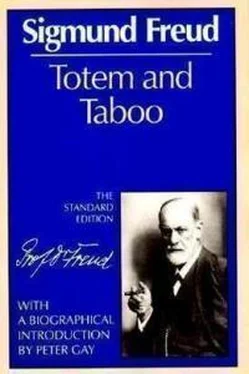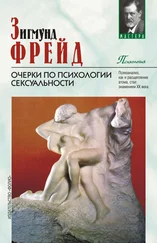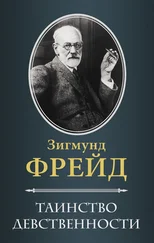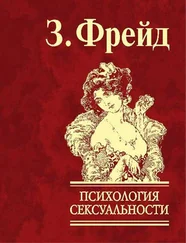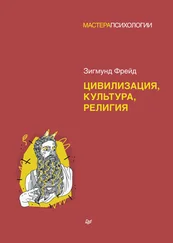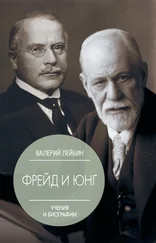Зигмунд Фрейд - Totem and Taboo
Здесь есть возможность читать онлайн «Зигмунд Фрейд - Totem and Taboo» весь текст электронной книги совершенно бесплатно (целиком полную версию без сокращений). В некоторых случаях можно слушать аудио, скачать через торрент в формате fb2 и присутствует краткое содержание. Год выпуска: 2014, Издательство: epubBooks Classics, Жанр: Психология, на английском языке. Описание произведения, (предисловие) а так же отзывы посетителей доступны на портале библиотеки ЛибКат.
- Название:Totem and Taboo
- Автор:
- Издательство:epubBooks Classics
- Жанр:
- Год:2014
- ISBN:нет данных
- Рейтинг книги:3 / 5. Голосов: 1
-
Избранное:Добавить в избранное
- Отзывы:
-
Ваша оценка:
- 60
- 1
- 2
- 3
- 4
- 5
Totem and Taboo: краткое содержание, описание и аннотация
Предлагаем к чтению аннотацию, описание, краткое содержание или предисловие (зависит от того, что написал сам автор книги «Totem and Taboo»). Если вы не нашли необходимую информацию о книге — напишите в комментариях, мы постараемся отыскать её.
Totem and Taboo — читать онлайн бесплатно полную книгу (весь текст) целиком
Ниже представлен текст книги, разбитый по страницам. Система сохранения места последней прочитанной страницы, позволяет с удобством читать онлайн бесплатно книгу «Totem and Taboo», без необходимости каждый раз заново искать на чём Вы остановились. Поставьте закладку, и сможете в любой момент перейти на страницу, на которой закончили чтение.
Интервал:
Закладка:
Having thus explained the basis on which the very instructive taboo of the dead has grown up, we must not miss the opportunity of adding a few observations which may become important for the understanding of taboo in general.
The projection of unconscious hostility upon demons in the taboo of the dead is only a single example from a whole series of processes to which we must grant the greatest influence in the formation of primitive psychic life. In the foregoing case the mechanism of projection is used to settle an emotional conflict; it serves the same purpose in a large number of psychic situations which lead to neuroses. But projection is not specially created for the purpose of defence, it also comes into being where there are no conflicts. The projection of inner perceptions to the outside is a primitive mechanism which, for instance, also influences our sense–perceptions, so that it normally has the greatest share in shaping our outer world. Under conditions that have not yet been sufficiently determined even inner perceptions of ideational and emotional processes are projected outwardly, like sense perceptions, and are used to shape the outer world, whereas they ought to remain in the inner world. This is perhaps genetically connected with the fact that the function of attention was originally directed not towards the inner world, but to the stimuli streaming in from the outer world, and only received reports of pleasure and pain from the endopsychic processes. Only with the development of the language of abstract thought through the association of sensory remnants of word representations with inner processes, did the latter gradually become capable of perception. Before this took place primitive man had developed a picture of the outer world through the outward projection of inner perceptions, which we, with our reinforced conscious perception, must now translate back into psychology.
The projection of their own evil impulses upon demons is only a part of what has become the world system (‘Weltanschauung’) of primitive man which we shall discuss later as ‘animism’. We shall then have to ascertain the psychological nature of such a system formation and the points of support which we shall find in the analysis of these system formations will again bring us face to face with the neurosis. For the present we merely wish to suggest that the ‘secondary elaboration’ of the dream content is the prototype of all these system formations [84] Freud, The Interpretation of Dreams .
. And let us not forget that beginning at the stage of system formation there are two origins for every act judged by consciousness, namely the systematic, and the real but unconscious origin [85] The projection creations of primitive man resemble the personifications through which the poet projects his warring impulses out of himself, as separated individuals.
.
Wundt [86] Myth and Religion , p. 129.
remarks that “among the influences which myth everywhere ascribes to demons the evil ones preponderate, so that according to the religions of races evil demons are evidently older than good demons.” Now it is quite possible that the whole conception of demons was derived from the extremely important relation to the dead. In the further course of human development the ambivalence inherent in this relation then manifested itself by allowing two altogether contrary psychic formations to issue from the same root, namely, the fear of demons and of ghosts , and the reverence for ancestors [87] In the psychoanalysis of neurotic persons who suffer, or have suffered, in their childhood from the fear of ghosts, it is often not difficult to expose these ghosts as the parents. Compare also in this connection the communication of P. Haeberlin, Sexual Ghosts ( Sexual Problems , Feb. 1912), where it is a question of another erotically accentuated person, but where the father was dead.
. Nothing testifies so much to the influence of mourning on the origin of belief in demons as the fact that demons were always taken to be the spirits of persons not long dead. Mourning has a very distinct psychic task to perform, namely, to detach the memories and expectations of the survivors from the dead. When this work is accomplished the grief, and with it the remorse and reproach, lessens, and therefore also the fear of the demon. But the very spirits which at first were feared as demons now serve a friendlier purpose; they are revered as ancestors and appealed to for help in times of distress.
If we survey the relation of survivors to the dead through the course of the ages, it is very evident that the ambivalent feeling has extraordinarily abated. We now find it easy to suppress whatever unconscious hostility towards the dead there may still exist without any special psychic effort on our part. Where formerly satisfied hate and painful tenderness struggled with each other, we now find piety, which appears like a cicatrice and demands: De mortuis nil nisi bene . Only neurotics still blur the mourning for the loss of their dear ones with attacks of compulsive reproaches which psychoanalysis reveals as the old ambivalent emotional feeling. How this change was brought about, and to what extent constitutional changes and real improvement of familiar relations share in causing the abatement of the ambivalent feeling, need not be discussed here. But this example would lead us to assume that the psychic impulses of primitive man possessed a higher degree of ambivalence than is found at present among civilized human beings. With the decline of this ambivalence the taboo, as the compromise symptom of the ambivalent conflict, also slowly disappeared. Neurotics who are compelled to reproduce this conflict, together with the taboo resulting from it, may be said to have brought with them an atavistic remnant in the form of an archaic constitution the compensation of which in the interest of cultural demands entails the most prodigious psychic efforts on their part.
At this point we may recall the confusing information which Wundt offered us about the double meaning of the word taboo, namely, holy and unclean (see above). It was supposed that originally the word taboo did not yet mean holy and unclean but signified something demonic, something which may not be touched, thus emphasizing a characteristic common to both extremes of the later conception; this persistent common trait proves, however, that an original correspondence existed between what was holy and what was unclean, which only later became differentiated.
In contrast to this, our discussion readily shows that the double meaning in question belonged to the word taboo from the very beginning and that it serves to designate a definite ambivalence as well as everything which has come into existence on the basis of this ambivalence. Taboo is itself an ambivalent word and by way of supplement we may add that the established meaning of this word might of itself have allowed us to guess what we have found as the result of extensive investigation, namely, that the taboo prohibition is to be explained as the result of an emotional ambivalence. A study of the oldest languages has taught us that at one time there were many such words which included their own contrasts so that they were in a certain sense ambivalent, though perhaps not exactly in the same sense as the word taboo [88] Compare my article on Abel’s Gegensinn der Urworte in the Jahrbuch für Psychoanalytische und Psychopathologische Forschungen , Bd. II, 1910.
. Slight vocal modifications of this primitive word containing two opposite meanings later served to create a separate linguistic expression for the two opposites originally united in one word.
The word taboo has had a different fate; with the diminished importance of the ambivalence which it connotes it has itself disappeared, or rather, the words analogous to it have vanished from the vocabulary. In a later connection I hope to be able to show that a tangible historic change is probably concealed behind the fate of this conception; that the word at first was associated with definite human relations which were characterized by great emotional ambivalence from which it expanded to other analogous relations.
Читать дальшеИнтервал:
Закладка:
Похожие книги на «Totem and Taboo»
Представляем Вашему вниманию похожие книги на «Totem and Taboo» списком для выбора. Мы отобрали схожую по названию и смыслу литературу в надежде предоставить читателям больше вариантов отыскать новые, интересные, ещё непрочитанные произведения.
Обсуждение, отзывы о книге «Totem and Taboo» и просто собственные мнения читателей. Оставьте ваши комментарии, напишите, что Вы думаете о произведении, его смысле или главных героях. Укажите что конкретно понравилось, а что нет, и почему Вы так считаете.
